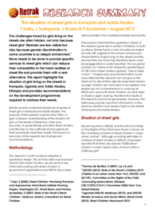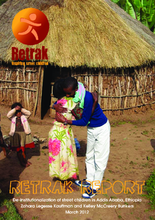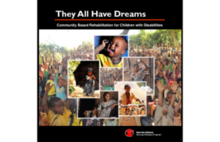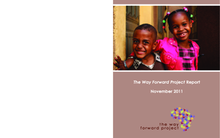childrens_living_arrangement
children_living_without_bio
Displaying 121 - 130 of 155
In this report, Retrak examines the situation of girls living on the streets in Kampala, Uganda and Addis Ababa, Ethiopia, and provides key recommendations on the development programs required to address their needs. The report urges for scaling up services, building new facilities for street girls, and building staff capacity to handle issues related to this population.
This document provides an overview of The Fifth International Policy Conference on the African Child held on 29-30 May 2012 at the United Nations Conference Center Addis Ababa, Ethiopia. The overall goal of the Fifth IPC was to further the discussion on intercountry adoption and to contribute to the improvement of national laws, policies, systems and procedures relating to intercountry adoption.
Retrak’s technical brief on family reintegration for children living on the streets, acknowledges the difficulties which street children face at home and on the streets. But it also demonstrates that successful family reintegration is possible for street children when there is a focus on the individual child, building positive attachments with care-givers, strengthening families capabilities and involving the wider community.
Retrak is a UK based charity that works with street associated children in Africa to give them a real alternative to life on the street. The following success stories of outreach and reintegration show a promising model for children globally.
This ‘Top Ten Resources’ document lists the currently most relevant materials on Child Protection, as identified by Save the Children’s Child Protection Initiative (CPI).
The study was carried out in Addis Ababa, Ethiopia. The purpose of this research is to utilise information collated from literature review as well as informant interviews and focus group discussions to identify good practices or help inform the development of such practices aimed at assisting street children currently residing in institutional care to return to a family-based environment.
The intention of this booklet is to document and share the good practices and results that the Save the Children Norway – Ethiopia (SCN-E) project has achieved at different levels with improved outcomes on the lives of the individual child with disability, families, the community, and institutions.
The Congressional Coalition on Adoption Institute’s The Way Forward Project brought together a group of international experts to discuss opportunities and challenges facing governmental and non-governmental organization leaders in six African nations (Ethiopia, Ghana, Kenya, Malawi, Rwanda, and Uganda) as they work to develop systems of care that serve children in and through their families.
This paper looks at how social protection is evolving in developing countries and how it relates to the vulnerabilities of children. It goes on to present the different conceptual models for protection and how they have changed and been influenced by the changing definition of poverty and the growth in transnational knowledge and policymaking.
The Chief of Party is responsible for the overall coordination and management of a large USAID/PEPFAR program serving orphans and vulnerable children (OVC).







